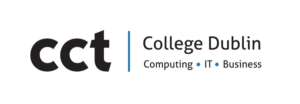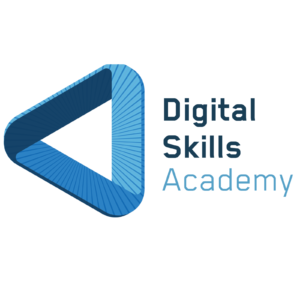Course Description
A Diploma in Introduction to Computer Programming (Java)
CCT College Dublin
Java Programming Course Overview and Audience
This java programming course is ideal for anyone with a keen interest in learning object oriented programming in the Java language. The course provides an overview of the software development process in addition to introducing important programming constructs and methodologies. As this is an introductory course no pre-requisite qualifications are necessary, but any experience in Computing and particularly in Programming and Software Development is advantageous.
Java Course Aims and Objectives
The primary aim of this course is to teach newcomers the basics of object-oriented programming and software design using the Java programming language. This is aim is designed to meet the needs of candidates who are currently working in related fields and want to up-skill or those who wish to pursue entry-level roles in the ICT sector. This course is also ideal for those who wish to pursue further study in Computer Science.
Programme Content
The programme is delivered through tutor led classes, concentrating on labs and hands-on skills. The primary topics covered are:
- Introduction to Computer Programming
Understanding programming concepts
Application programming interfaces (APIs)
Good practice & conventions
Problem solving
- Program Implementation
System variables
Debugging methods & tools
Syntax, semantic & run-time errors
Program testing
- Variables and Input/Output
Declare & initialize variables
Arithmetic calculations
Comments
Input and output streams
- Control Structures
Logical expressions
Repetition / iteration
Selection / conditionals
Compound statements
Methods
Declaration
Parameters & arguments
Return values
Static methods
- Arrays
Arrays as data structures
Array processing & manipulation
Value and reference parameters
Passing arrays to methods
Multi-dimensional arrays
Array-lists
- String Manipulation
Strings
Immutable strings
String delimiters
String classes & methods
- File Handling
Streams (input/output/buffered/unbuffered)
Sequential file processing
Random file processing
Test file processing
- Basic Object-Oriented Principles
Classes, attributes & methods
Objects, classes
Instantiation, constructors
Access modifiers
Note: Programme Content is subject to some variations, subject to the collective level in Programming for each group and current industry demand/trends.
Assessment
Continuous Assessment and Project work will be utilised to assess student progression on this programme.
Career Progression Opportunities and Further Study Options
This course provides a strong foundation in the fundamentals of Java programming focusing on industry standards. A core focus is in problem decomposition and critical thinking.The problem solving abilities developed throughout this programme are key in many industries and place graduates at a significant advantage in decision making positions. The programme is designed to provide the learner with the skills, knowledge, and competencies required to pursue entry-level programming positions or to continue their study into software engineering and computer science. Students often progress on to the CCT College Dublin Diploma in Advanced Java or the Diploma in Python Programming.
*Provisional – subject to change
| Course Code | PTL-606 |
| College Name | CCT College Dublin |
| Course Category | Computers & IT (Information Technology), Java |
| Course Type | Classroom Based |
| Course Qualification | Diploma |
| Course Location | Dublin, Ireland |
| Location Postcode | Dublin 2 |
| Course Start Date | 20th September 2021 |
| Course Fee | €790 |
| Course Duration | 11 weeks, one evening per week, with intakes offered in Spring and Autumn |
| Course Times | 6.30-9.30pm, one evening per week |
| Career Path | This programme provides a strong foundation in the fundamentals of Java programming focusing on industry standards. A core focus is in problem decomposition and critical thinking. The programme is designed to provide the learner with the skills, knowledge, and competencies required to pursue entry-level programming positions or to continue their study into software engineering and computer science. The problem solving abilities developed throughout this programme are key in many industries and place graduates at a significant advantage in decision making positions. |


